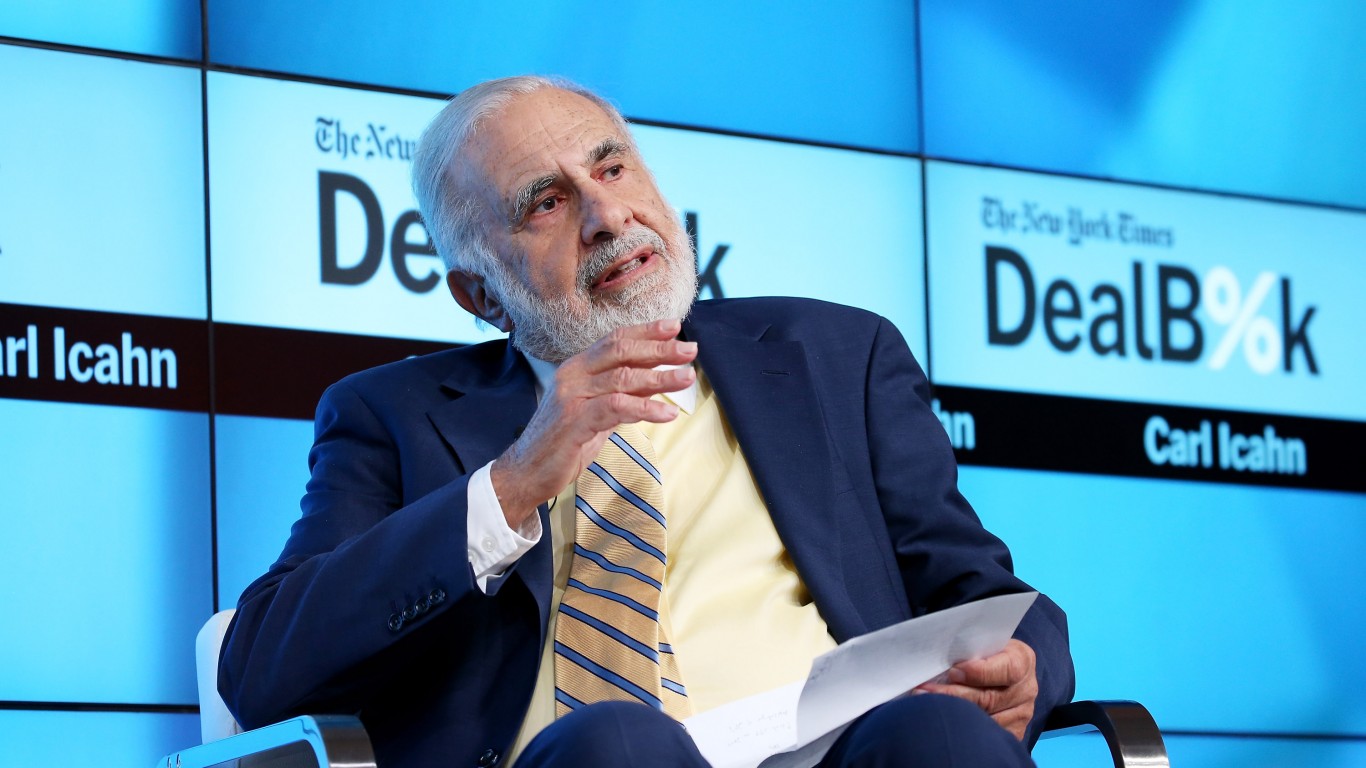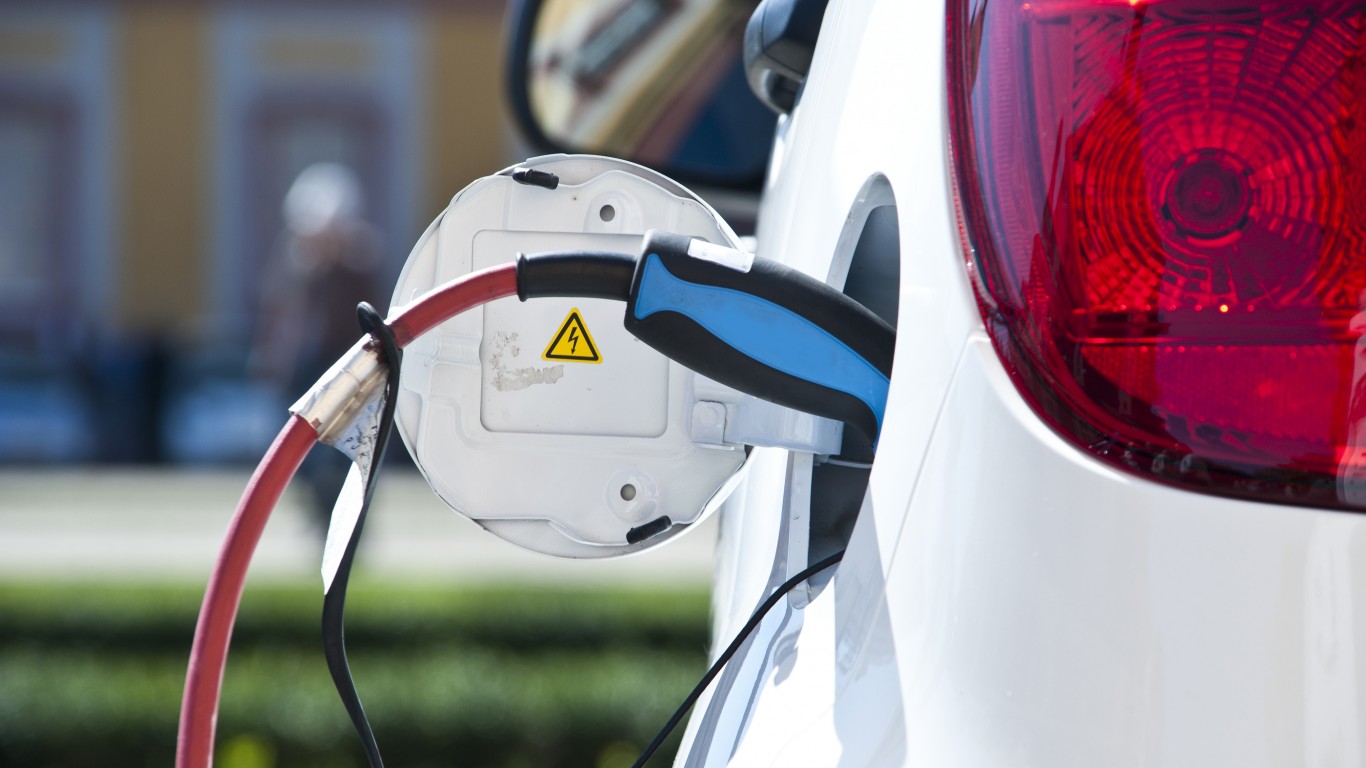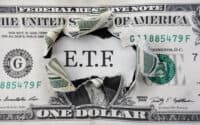
Some billionaires like Warren Buffett are beloved for their investments. Tens of thousands of people flock to Omaha every year to attend the annual Berkshire Hathaway (NYSE:BRK-A)(NYSE:BRK-B) to listen to the investment wisdom of Buffett and his late partner Charlie Munger. Other billionaires, not so much.
Where companies celebrate an investment by Buffett, they tremble when investors like Carl Icahn acquire a stake. Despite his success in the market, Icahn has the reputation of being a corporate raider who tears companies apart and leaves their bones bleaching in the sun. Even though he subscribes to a value investing philosophy like Buffett, they approach it in very different ways.
The Oracle of Omaha looks for great companies trading at good prices before buying in and holding on for the long run. Icahn looks for stocks trading at significant discounts, but is willing to blow up the business by loading it with debt, selling off its best assets, and then walking away with a significant profit. It is said the character Gordon Gekko in the movie Wall Street is inspired by Icahn.
While Icahn doesn’t always invest that way today, let’s take a look at what are arguably three of the billionaire’s greatest investments of all time.
Key Points About This Article:
- Billionaire investor Carl Icahn is the premier corporate raider known for his hostile takeovers and leveraged buyouts.
- Icahn’s appeal today is of a more benign corporate activist and the three deals below are among his most famous that helped burnish his reputation.
- If you’re looking for some stocks with huge potential, make sure to grab a free copy of our brand-new “The Next NVIDIA” report. It features a software stock we’re confident has 10X potential.
Tappan

Carl Icahn’s 1978 investment in appliance maker Tappan wasn’t especially big and his profit was relatively small, but it was his first major investment that raised eyebrows of those around him and came to define some of his biggest investments later on.
Founded in the 1800’s, Tappan was a well-known appliance company that had fallen on difficult times. With its stock trading at a discounted value, Icahn began buying up shares by combining his own money with borrowed money to finance the purchase. After acquiring a 5% stake in the business, he demanded and was given a seat on Tappan’s board of directors, and then called for the company’s liquidation. Rather than go out of business, the appliance maker sold itself to Electrolux (OTC:ELUXY) for $2.8 million.
The sale doubled Icahn’s initial $1.4 million investment. The financier’s maneuvers so impressed Tappan’s board chairman that he afterward became a regular investor alongside Icahn.
The billionaire’s mark on the market eventually became so great that when Icahn would establish a stake in a business, management would often pay him larger sums to go away. In that way the term “greenmail” became associated with Icahn.
Trans World Airlines

It was his hostile takeover of troubled Trans World Airlines that defined Icahn’s reputation and highlighted his use of the leveraged buyout strategy.
In 1985, Icahn acquired a better than 20% stake in the airline that was struggling with deregulation. Using around $470 million of his own money, he leveraged the company’s assets to secure loans that allowed him to buy the airline and take it private. Ultimately, TWA was saddled with $540 million in debt.
Once in control, he started slashing costs while working to improve its operational efficiency, including selling off non-core assets and restructuring the company to focus on profitability. Among those assets sold were airport terminals and other real estate TWA owned, the number of aircraft in the airline’s fleet was reduced, and he sold off some of its most valuable routes to European destinations.
While all of this raised cash and eliminated some of TWA’s debt, the longer term implications were that the airline could no longer effectively compete. TWA eventually filed for bankruptcy in 1992. While it continued to operate for another decade, it filed for its third and final bankruptcy in 2001 and was acquired by American Airlines (NASDAQ:AAL). Icahn, though, exited the investment with a $1 billion profit.
Herbalife (HLF)

One of Icahn’s more high-profile investments that didn’t involve tearing down a company, but actually backing it, was supplements seller Herbalife (NYSE:HLF).
Fellow billionaire investor Bill Ackman had opened a large, $1 billion short position against Herbalife in 2012, calling the company a pyramid scheme. That, however, triggered a hedge fund war that saw other notable investors including Robert Chapman, of Chapman Capital Partners; Daniel Loeb, of Third Point Capital; and John Hempton, of Bronte Capital all critiquing Ackman as wrong.
Icahn, who had been feuding with Ackman for years over a failed real estate deal that ended up in court, eventually became Herbalife’s biggest shareholder in an effort to beat his nemesis. He owned 13% of the company and increased his stake to as much as 21% at the peak. He also received five seats on the board of directors.
After five years of waging battling, Ackman finally acquiesced and his Pershing Square Capital Management fund quietly sold off his short position with a $1 billion loss. Icahn, on the other hand, ended up walking away with a $1.3 billion profit.
Saying he had believed in the company, its products, and its strategy, Icahn told Barron’s, “The time for activism has passed as the company has grown, and I don’t typically invest billions of dollars in companies where our role as activist is not needed.”
It’s Your Money, Your Future—Own It (sponsor)
Retirement can be daunting, but it doesn’t need to be.
Imagine having an expert in your corner to help you with your financial goals. Someone to help you determine if you’re ahead, behind, or right on track. With SmartAsset, that’s not just a dream—it’s reality. This free tool connects you with pre-screened financial advisors who work in your best interests. It’s quick, it’s easy, so take the leap today and start planning smarter!
Don’t waste another minute; get started right here and help your retirement dreams become a retirement reality.
Thank you for reading! Have some feedback for us?
Contact the 24/7 Wall St. editorial team.





